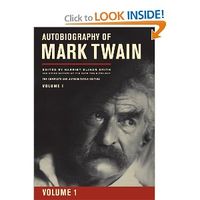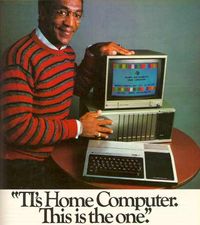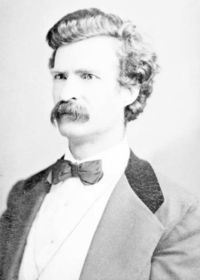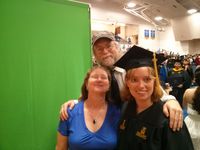Think of this as Volume 17, Number 20 of A-Clue.com, the online newsletter I've written since 1997. Enjoy.
 Mark Twain's been gone for over a
Mark Twain's been gone for over a
century now, but his work still leaves a mark.
He was considered America's premier
writer for much of his life, and remains our most famous. He worked
from the unusual position of humor, but produced some of the most
profound classics of the American page.
It's well-known that he liked
technology. He wrote “Huckleberry Finn” on a typewriter, which
was technology in the 1870s. He lost a fortune on a typesetting
machine, which was the minicomputer of the 1880s. He ran his own
publishing house and pioneered the selling of books by subscription.
And he wasn't shy about any of it, which is a lesson more writers
should take to heart.
But what I didn't realize until reading
his autobiography recently was just how much of a technophile he really was.
 Because Twain didn't write the way I
Because Twain didn't write the way I
do, or the way most people do. He wasn't really a writer at all. He
was a speaker. He was an entertainer. He was closer to Bill Cosby
than to William Faulkner. The most efficient way for him to write, he
found, was just to say it out loud.
Imagine that.
In Jerry Seinfeld's film “Comedian” we get a good view of what Cosby is like, and what Twain himself was.
Seinfeld and his crew go out to visit the man, who is working in New
Jersey, and come back to their own set to talk about it.
At the time Seinfeld was trying to
build a new 90 minute act following the end of his TV show. It's a
struggle. We see it. It's all written down, it's all well-rehearsed,
and it's typical of how a modern comedian works. Then he sees Cosby.
“He's doing two shows a day, 90 minutes each set, and each one is
completely different,” Jerry says, and the awe is real.
Bill Cosby can just sit on a chair, on
a stage, start talking, and somehow it comes out clean, polished,
complete. There are no long pauses, he doesn't have to reach into his
memory for the next line. He just tells stories, about his life,
about what interests him, and it's gold. All of it.
Twain was like that. From the 1860s he
went on stages around the world and basically riffed for an hour or
two, to tremendous applause. His writing was a cramped, low-tech way
of making his work permanent. I wonder if, had he grown up in our
time, he would have written anything at all.
He wrote by speaking. What came out of
his mouth was amazingly fluent, complete, and graceful. He knew it.
He had an ego, and praise just inflated it. He tried to capture that
in his autobiography by dictating it. Imagine what he could have done
with some tools, like a tape recorder. Imagine what he could have
done on YouTube.

course, and the great Groucho Marx, is that he also brought his pain
to everything he did. It all had heart, like Billy Crystal's best
stuff. In his "Midnight Train to Moscow" Crystal makes a Russian audience laugh for a full hour, then tells a
story about how his great-grandmother supposedly came to America by
telling her family she was going to Kiev by train. He ends it by
getting on a train and seeing that scene, with his daughter playing
the ancestor. Tears your heart out.
Twain, of course, had a lot to be torn
up about. His wife and daughters pre-deceased him. He lost the
fortune on the typesetter. He wasn't nearly as a good a businessman
as he thought – he had this nasty streak of honesty in him.
He felt this pain – all of it – and
it comes out in the autobiography. He knew he wasn't reliable witness
to his own life, and knows no man really is, although most pretend to
be. He struggled with the project for decades, and what finally
emerged from the transcriptions is a man struggling to turn reality
into art.
But the point is that Twain was alive
to all the technology trends of his time. He wasn't cloistered in
some office or library. He was in the world, a participant, and was
constantly pushing the technology envelope to help him deliver more
of himself to his fans.
We all need to be more like that.
Especially our writers.











One caveat on reading the book. The first 200 pages are really only for the academic bibliophile and those retentive types concerned with the provenance of the sources. GO directly to page 200 or so and dive in…you won’t regret it.
One caveat on reading the book. The first 200 pages are really only for the academic bibliophile and those retentive types concerned with the provenance of the sources. GO directly to page 200 or so and dive in…you won’t regret it.